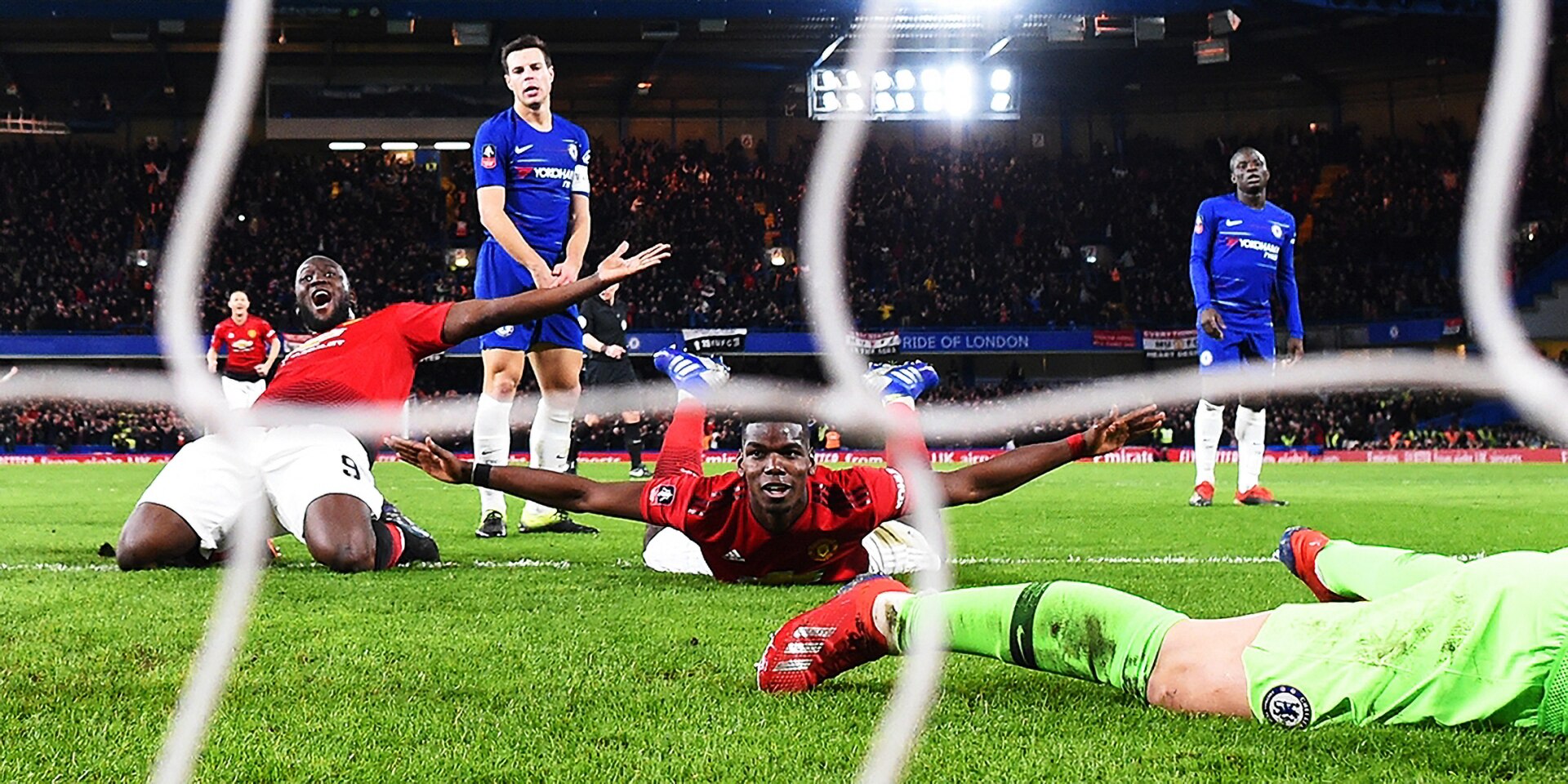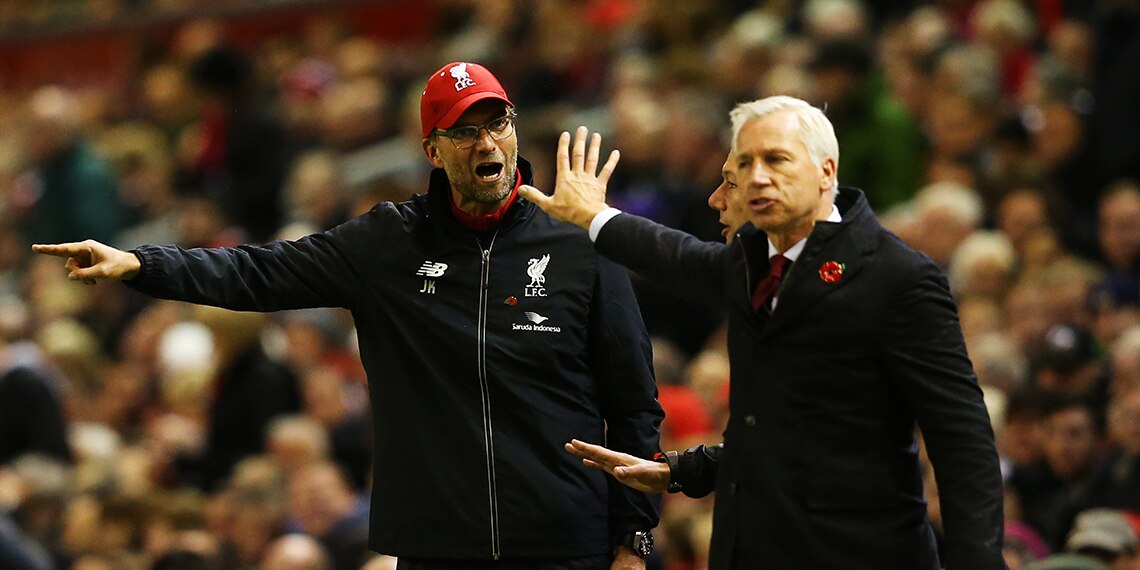Welcome - Interrupting - Sharing important news
Jack: Hello my name’s Jack
Rich: and I’m Rich and welcome to this week’s Premier Skills English podcast
Jack: Where we talk about football and help you with your English.
Rich: We recommend that you listen to this podcast on the Premier Skills English website because that is where we have the transcript, language examples, activities, quizzes and a discussion page to help you understand everything we talk about.
Jack: However, if you’re listening on Spotify or Apple Podcasts, you could leave your answers in the review section. We do read all the reviews and would love to hear from you.
Rich: In this week’s podcast, we’re going to be talking about the language you need to interrupt someone who is speaking.
Jack: And we are going to talk about important news.
Rich: Important news?
Jack: Yes, important or surprising news such as your exam results or that you have a new job or you’re moving house, getting married that kind of thing.
Rich: OK, so in the podcast, we’re going to do three short role plays where I want to tell Jack something and I need to interrupt him.
Jack: To interrupt means to stop someone speaking by saying or doing something.
Rich: We’ll also do a couple of roleplays where I give Jack some important news and Jack responds to this news.
Rich: Following the roleplays, we’ll focus on the language we use to interrupt someone and the language we use to respond to good news.
Jack: We will also have a task for you to do which is when we ask you to use your English. This week we’re going to ask you to tell us about a time when you shared some important or surprising news.
Rich: And this week we have a special guest on the show. We’ve got Adam who is a teacher from the British Council in Vietnam on the show, and he will help you with the task that we have for you.
Jack: And, don’t forget to listen to the end of the podcast because we have another football phrase for you to guess.
Football Phrase 1
Jack: But, before we look at all that let’s look at last week’s football phrase. If you didn’t hear it last week we’ll give you one more chance to guess and give you the correct answer at the end of the show when we give you a new football phrase.
Rich: The phrase was ______ _______. These are things you wear under your socks to protect your legs from bad challenges.
Jack: Well done if you got the right answer last week and a big well done to Milos from Serbia, Liubomyr from Ukraine, Lakerwang and Fred Zhong from China, and Elghoul from Algeria - all of you wrote the correct answer on the Premier Skills English website.
Rich: We’ll tell you the answer to this football phrase and we’ll have this week’s football phrase at the end of the show.
Introduction to Roleplay
Jack: As we said at the beginning of the show, in this week’s podcast, we are going to help you with phrases that you need when you want to interrupt someone.
Rich: This can be difficult sometimes as you need to find a natural break or pause in the conversation to be polite and some people like speaking a lot so this can be difficult.
Jack: We are going to do three short roleplays. Each time, Rich has something to say that may or may not be important.
Rich: While you are listening, we want you to answer two questions. Question 1: What phrase do I use to interrupt the conversation? Question 2: Do I interrupt Jack in a polite way?
Roleplay 1
Jack: As I was saying, it was a great match. Did you see that pass from Pogba … absolutely sensational. I wasn’t so sure about …
Rich: Sorry for butting in, but I think that guy over there is trying to get your attention.
Jack: Oh, thanks. It’s my dad. I wonder what he wants? I’ll be back in a sec.
Roleplay 2
Jack: As I was saying, it was a great match. Did you see that pass from Pogba … absolutely sensational. I wasn’t so sure about …
Rich: Will you let me speak for just one second here. Pogba played well but I don’t think he was the best player on the pitch. That had to be Rashford.
Jack: If you say so, Rich.
Roleplay 3
Jack: As I was saying, it was a great match. Did you see that pass from Pogba … absolutely sensational. I wasn’t so sure about …
Rich: Actually, Jack. I’m not so sure. It was a great pass but the other team - they were rubbish! I don’t think it would be the same against a better team.
Jack: You might be right. Well, we’ll see soon when they play Liverpool. That’ll be a great game.
Roleplay Questions
Jack: In a moment, we’re going to look at some of the language we used in the roleplay, but first we need to give you the answers to those two questions.
Rich: The first question was: What phrases did I use to interrupt Jack?
Jack: In the first roleplay, Rich said: ‘Sorry for butting in, but …’, in the second roleplay he said: ‘Will you let me speak for just one second here’ and in the third roleplay he used the word ‘actually’ followed by my name.
Rich: Our second question was whether these phrases were polite or not.
Jack: The first was polite and more formal. The second was impolite. The third was polite and more informal. We’ll look at these phrases in more detail in the next section.
Language Focus
Jack: Let’s start by looking at some phrases we can use to interrupt someone. Remember, to interrupt means to stop someone speaking by saying or doing something.
Rich: OK, so as we saw in the roleplays, we can interrupt someone in a polite or impolite way. We’re not going to focus on how to be rude!
Jack: No, although it’s important to know what not to say when you are interrupting. When Rich said ‘Will you let me speak for just one second here’ communication broke down.
Rich: Yes, it’s not a good idea to ask to speak directly, we shouldn’t say things like ‘Can I speak now?’ or ‘Will you let me speak?’. We have to be more polite than that.
Jack: It’s also not a good idea to tell someone to ‘be quiet’ or even worse to tell someone to ‘shut up’. This is very rude.
Rich: But, we can use different phrases in formal and informal situations that are polite. In the first roleplay, I used the phrase ‘Sorry for butting in, but …’.
Jack: This is a phrase that is more formal and may be used if you are interrupting a group of people you don’t know.
Rich: Similar phrases are ‘excuse me for interrupting’ or ‘sorry for interrupting’.
Jack: In more formal situations such as meetings at work or during classroom discussions you may also want to interrupt in a formal way. This is often when you want to add something to the discussion.
Rich: Here the words ‘say’ ‘add’ and ‘mention’ are important. You could use a phrase such as ‘Could I just mention something here?’ or ‘Could I add an additional point here?’. These are nice formal ways to interrupt and show people that you have something to say.
Jack: These phrases would be too formal for speaking to friends or in more informal situations but we still need to be polite. We can’t tell people to ‘be quiet’ or ‘shut up’ remember.
Rich: In the roleplay, I used the word ‘actually’. This is a common word to use to interrupt. We often use it when we are going to disagree with the person that is speaking. We often use the person’s name too for more emphasis.
Jack: Other informal phrases we use are: ‘hold on there a second’ or ‘wait a minute, I’m not so sure about that’.
Rich: If you want to look at this type of language in more detail we have lots more examples, the transcript and activities on the Premier Skills English Podcast page on the website.
Roleplay: Responding to good news
Jack: At the beginning of the podcast, we told you that we were going to talk about important or surprising news.
Rich: We hear good news all the time. It’s much more common than bad news, honestly.
Jack: People pass exams, get married, have children, get promotions, get new jobs and win competitions or football matches.
Rich: In this next section, we’re going to look at how to respond to good or surprising news in English.
Jack: Here are two little roleplays. How do I respond to Rich’s good news?
Roleplay 1
Jack: How are you today?
Rich: Very well thank you. Actually, I have some good news.
Jack: What’s that then?
Rich: I’m going to be getting married in July.
Jack: Fantastic. That is good news. Congratulations. Are you excited?
Rich: Yes, very.
Jack: So, when's the big day?
Rich: The tenth of July.
Jack: Brilliant. I’m very happy for you both.
Roleplay 2
Jack: How are you today?
Rich: Very well thank you. Actually, I have some good news.
Jack: What’s that then?
Rich: I’ve got a new job.
Jack: That’s great news. You deserve it. When do you start?
Rich: The beginning of the month.
...
Jack: We usually respond to good news with one very important word: congratulations.
Rich: But we also say ‘that is’ or ‘what’ followed by a strong positive adjective like fantastic or brilliant. We say things like That’s fantastic news or What brilliant news!
Jack: And we usually use additional questions to ask how the person is feeling such as ‘Are you excited?’ or ‘When do you start?’ to show interest.
Task
Jack: This week’s task is to tell us about a time when you shared an important or surprising piece of news. Try to think of a happy event.
Rich: These are the three questions we want you to answer: Question one: What was your piece of good/surprising news?, Question two: Who did you share your news with? And question three: How did they react to your news?
Jack: To help you, we’ve asked someone to do this task so you can hear an example.
Rich: We asked Adam, who works for the British Council in Vietnam, to answer those three questions we’ve just given you - thanks for helping us out with this, Adam.
Jack: So, before you do the task we want you to listen to Adam doing the task. While you are listening we want you to answer the same questions:
Rich: Question one: What was Adam’s piece of good or surprising news?, Question two: Who did Adam share his news with? And question three: How did they react to his news?
ADAM AUDIO
…
Feedback
Jack: OK, did you answer those three questions? What was the answer to question one, Rich?
Rich: What was Adam’s piece of good or surprising news? Adam’s news was that he was going to move from England to Vietnam. Question two, Jack?
Jack: Who did Adam share his news with? He first told his parents and then the rest of his family and friends. And question three?
Rich: How did they react to his news? This was the most difficult to answer but his parents were happy for him on the outside but a little bit worried in reality. His friends thought that he wouldn’t last long in Vietnam and took bets on how long it would be before he came home!
Jack: OK, so that’s your task this week. Tell us about some surprising or important news in the comments section at the bottom of the page on the Premier Skills English website.
This week’s football phrase:
Jack: The final section this week is this week’s football phrase.
Rich: The football phrase this time is ****** ******. This is a phrase that means that a club has lots of players that can not play because they got hurt in training or in a previous match. If a club’s ****** ****** is really bad they may have to play youth players in the first team or might not have enough players for the substitutes bench.
Jack: Quite a difficult phrase this week. Let’s see who can get it right! If you know the answer, write your answer in the comments section at the bottom of the page. We will announce your name in next week’s podcast if you get it right.
Rich: We also need to give you the answer to the football phrase we set at the beginning of the show. The answer as many of you know already was shin pads.
Jack: Right, that’s all we have time for this week. Bye for now and enjoy your football!









Log in or register to post comments